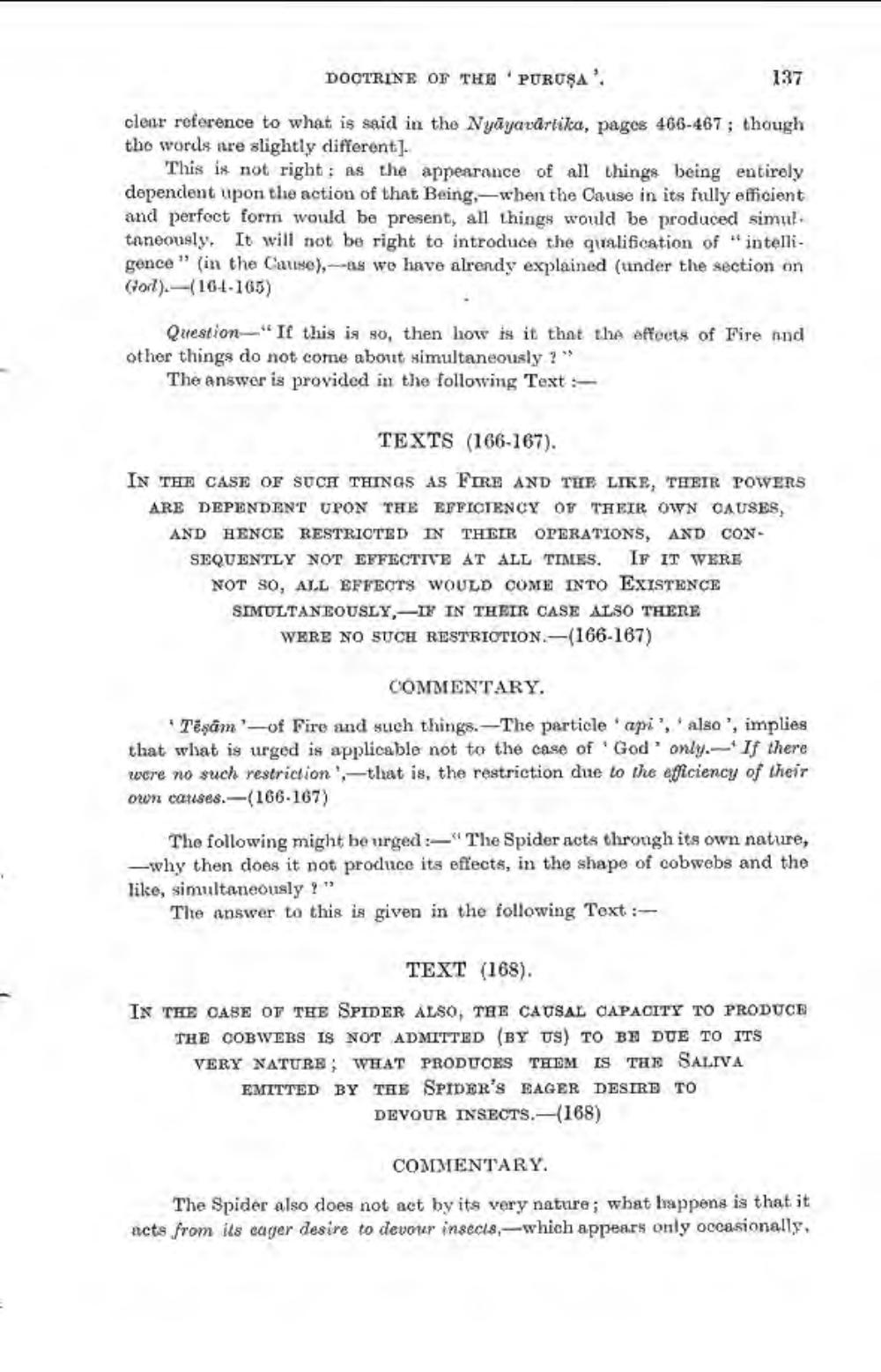________________
DOCTRINE OF THE PUROSA'.
137
clear reference to what is said in the Nyāyavārtika, pages 466-467 ; though the words are slightly different].
This is not right: as the appearance of all things being entirely dependent upon the action of that Being, when the Cause in its fully efficient and perfoct form would be present, all things would be produced simul taneously. It will not be right to introduce the qualification of "intelligence" (in the Canse),--as we have alrendy explained under the section on Gorl).-(164-165)
Question "If this is so, then how is it that the effects of Fire and other things do not come about simultaneously ?"
The answer is provided in the following Text :
TEXTS (166-167).
IN THE CASE OF SUCH THINGS AS FIRE AND THE LIKE, THEIR POWERS ARE DEPENDENT UPON THE EFFICIENCY OF THEIR OWN CAUSES, AND HENCE RESTRICTED IN THEIR OPERATIONS, AND CONSEQUENTLY NOT EFFECTIVE AT ALL TIMES. IF IT WERE NOT SO, ALL EFFECTS WOULD COME INTO EXISTENCE SIMULTANEOUSLY,—IY IN THEIR CASE ALSO THERE
WERE NO SUCH RESTRIOTION.-(166-167)
COMMENTARY.
Tēgām'-of Fire and such things. The particle api', also', implies that what is urged is applicable not to the case of God' only. If there exre no such restriction', -that is, the restriction due to the efficiency of their own causes.-(166-167)
The following might be urged :-"The Spider acts through its own nature, -why then does it not produce its effects, in the shape of cobwebs and the like, simultaneously ? "
The answer to this is given in the following Text:
TEXT (168).
IN THE CASE OF THE SPIDER ALSO, THE CAUSAL CAPACITY TO PRODUCE
THB COBWEBS IS NOT ADMITTED (BY US) TO BH DUE TO ITS VERY NATURE; WHAT PRODUCES THEM IS THE SALIVA EMITTED BY THE SPIDER'S EAGER DESIRD TO
DEVOUR INSECTS. (168)
COMMENTARY.
The Spider also does not act by its very nature; what happens is that it acts from its eager desire to devour insects, which appears only occasionally,




